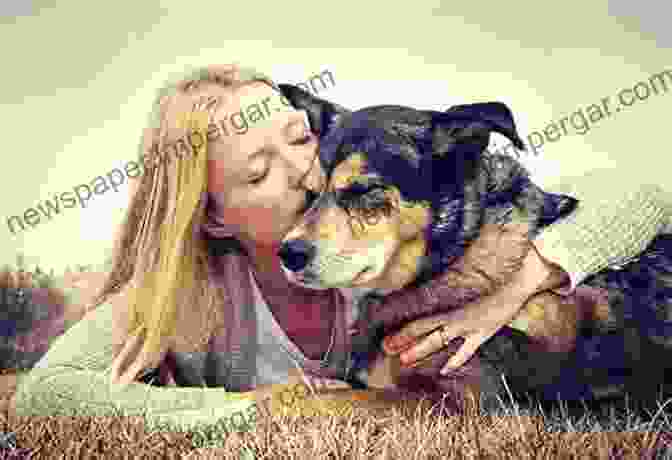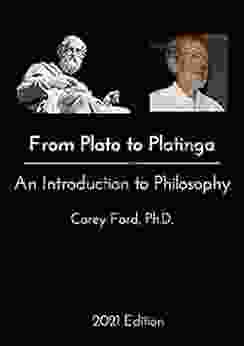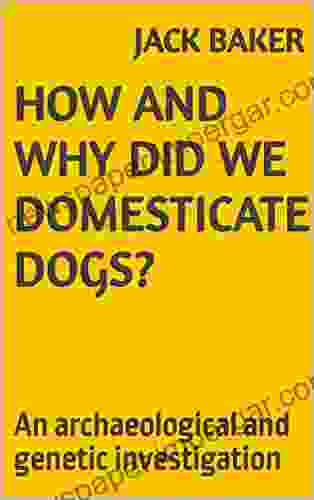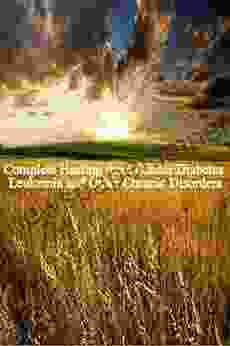The Curious Case of Canine Domestication: Unraveling the Enigma of Our Beloved Companions

Dogs, our loyal and beloved companions, have played an integral role in human history for millennia. Their unwavering companionship, protective instincts, and remarkable adaptability have made them an indispensable part of our lives. However, the origins of this extraordinary relationship remain shrouded in mystery, sparking a captivating quest among scientists and historians to unravel the secrets of dog domestication.
5 out of 5
| Language | : | English |
| File size | : | 983 KB |
| Text-to-Speech | : | Enabled |
| Screen Reader | : | Supported |
| Enhanced typesetting | : | Enabled |
| Print length | : | 16 pages |
| Lending | : | Enabled |
A Journey Through Time: Tracing the Evolutionary Path
The domestication of dogs is believed to have commenced at least 15,000 years ago, although some estimates suggest it may have occurred as early as 40,000 years ago. Archaeological evidence, such as ancient dog bones and cave paintings, provides tantalizing glimpses into this evolutionary journey.
Genetic analysis has played a pivotal role in elucidating the evolutionary relationship between dogs and their wild ancestors, wolves. By comparing DNA sequences, scientists have traced the genetic divergence between dogs and wolves, suggesting that dogs may have originated from a population of wolves that lived in close proximity to humans.
The Role of Mutualism: A Symbiotic Partnership
The domestication of dogs is not simply a story of humans imposing their will on a wild species. Rather, it is a tale of mutualism, where both humans and wolves benefited from their association.
Wolves, with their keen senses and hunting abilities, provided humans with protection and assistance in acquiring food. In return, humans offered wolves food and shelter, creating a mutually beneficial relationship that laid the foundation for domestication.
Selective Breeding: Shaping the Canine Form
Over time, humans began to selectively breed dogs for specific traits. They favored dogs that were less aggressive, more trainable, and possessed desirable physical characteristics. This selective breeding led to the development of distinct dog breeds, each with its own unique set of characteristics.
The remarkable diversity of dog breeds, ranging from the diminutive Chihuahua to the massive Great Dane, is a testament to the power of selective breeding. Humans have shaped the canine genome over centuries, creating a wide array of dogs that cater to different purposes and preferences.
Unveiling the Reasons: Why We Domesticated Dogs
The reasons for dog domestication are complex and multifaceted. Some researchers suggest that companionship was a primary driving force, as humans sought loyal and affectionate companions.
Others believe that dogs were primarily valued for their practical uses, such as hunting, herding, and guarding. Dogs' keen senses, agility, and trainability made them indispensable partners in various human endeavors.
Modern-Day Dogs: A Tapestry of Roles
Today, dogs continue to play a multitude of roles in human society. They serve as beloved family pets, providing companionship and emotional support. They assist law enforcement and military personnel, performing tasks such as drug detection and search and rescue.
Dogs are also indispensable in the medical field, providing therapeutic support to patients and aiding in the detection of diseases. Their intelligence, trainability, and unwavering loyalty make them invaluable partners in a wide range of endeavors.
: A Bond That Transcends Time
The domestication of dogs is a captivating story of mutualism, evolution, and human ingenuity. It is a testament to the deep connection between humans and animals, a bond that has endured for millennia.
As we continue to unravel the secrets of dog domestication, we gain a deeper understanding of our own history and the remarkable partnership that has shaped our world. Dogs, our loyal companions and cherished friends, are an integral part of the human experience, forever entwined in our hearts and lives.

5 out of 5
| Language | : | English |
| File size | : | 983 KB |
| Text-to-Speech | : | Enabled |
| Screen Reader | : | Supported |
| Enhanced typesetting | : | Enabled |
| Print length | : | 16 pages |
| Lending | : | Enabled |
Do you want to contribute by writing guest posts on this blog?
Please contact us and send us a resume of previous articles that you have written.
 Book
Book Novel
Novel Page
Page Chapter
Chapter Text
Text Story
Story Genre
Genre Reader
Reader Library
Library Paperback
Paperback E-book
E-book Magazine
Magazine Newspaper
Newspaper Paragraph
Paragraph Sentence
Sentence Bookmark
Bookmark Shelf
Shelf Glossary
Glossary Bibliography
Bibliography Foreword
Foreword Preface
Preface Synopsis
Synopsis Annotation
Annotation Footnote
Footnote Manuscript
Manuscript Scroll
Scroll Codex
Codex Tome
Tome Bestseller
Bestseller Classics
Classics Library card
Library card Narrative
Narrative Biography
Biography Autobiography
Autobiography Memoir
Memoir Reference
Reference Encyclopedia
Encyclopedia Johnjoe Mcfadden
Johnjoe Mcfadden John Prendergast
John Prendergast John Fisher
John Fisher Jonas Elbousty
Jonas Elbousty Joseph T Hallinan
Joseph T Hallinan Jon Najarian
Jon Najarian John Krige
John Krige Joseph R Sanok
Joseph R Sanok Jonathan Eagles
Jonathan Eagles John Mcquilkin
John Mcquilkin John Radzilowski
John Radzilowski Joseph F Kelly
Joseph F Kelly John Harriyott
John Harriyott John Gallagher
John Gallagher John Scott
John Scott Jonah Agunwamba
Jonah Agunwamba Jonathan Barnes
Jonathan Barnes John Sadler
John Sadler Jon Katz
Jon Katz John Prescott
John Prescott
Light bulbAdvertise smarter! Our strategic ad space ensures maximum exposure. Reserve your spot today!

 Robert BrowningWhere Country Western Met Rock Roll Music In American Life: A History of the...
Robert BrowningWhere Country Western Met Rock Roll Music In American Life: A History of the... Brady MitchellFollow ·7.8k
Brady MitchellFollow ·7.8k Phil FosterFollow ·4.5k
Phil FosterFollow ·4.5k Jesse BellFollow ·12.1k
Jesse BellFollow ·12.1k Ivan TurgenevFollow ·7.9k
Ivan TurgenevFollow ·7.9k Kendall WardFollow ·18.8k
Kendall WardFollow ·18.8k Ezekiel CoxFollow ·19.3k
Ezekiel CoxFollow ·19.3k Don ColemanFollow ·16.5k
Don ColemanFollow ·16.5k Colt SimmonsFollow ·15.3k
Colt SimmonsFollow ·15.3k

 Jake Powell
Jake PowellThe Constitution of the State of Colorado: A Legacy of...
Since its adoption in 1876, the...

 Devin Ross
Devin RossFrom Plato to Plantinga: A Journey Through the History of...
Philosophy is the study of...

 Robin Powell
Robin PowellWords That Hurt, Words That Heal: The Power of Language...
Words are powerful. They can...

 T.S. Eliot
T.S. EliotTantalize Your Taste Buds with Over 90 Low-Carb Ethnic...
Indulge in a Culinary Adventure with "Over...
5 out of 5
| Language | : | English |
| File size | : | 983 KB |
| Text-to-Speech | : | Enabled |
| Screen Reader | : | Supported |
| Enhanced typesetting | : | Enabled |
| Print length | : | 16 pages |
| Lending | : | Enabled |














